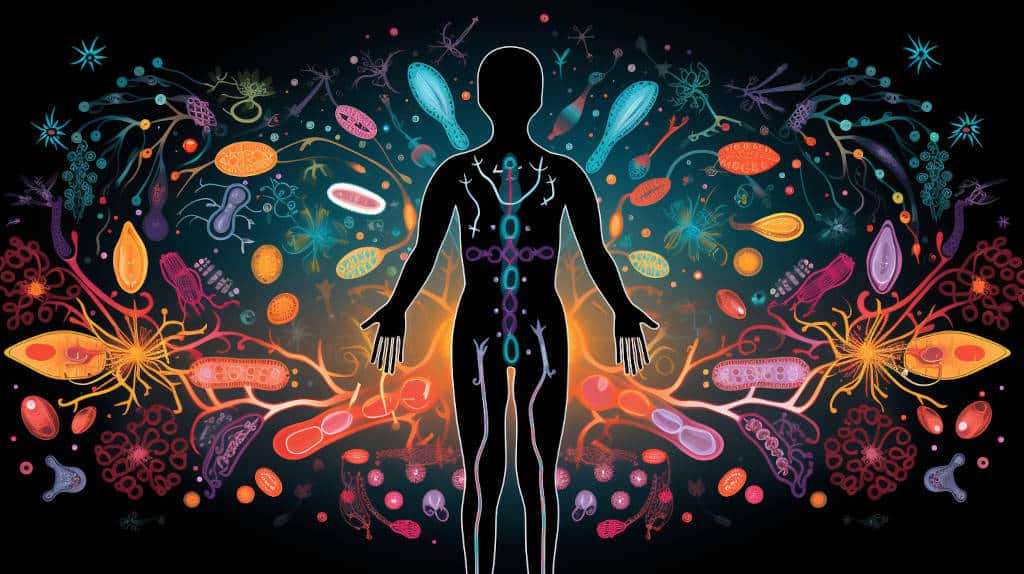Last Updated on July 7, 2024 by Max
Introduction
It has long been noted that the regular consumption of fruits, vegetables, and whole grains is correlated with a low incidence of chronic diseases such as cancer, cardiovascular disease, autoimmune diseases, etc. Scientists began attributing plant foods’ health benefits to various biologically active substances isolated from different parts of plants. However, the assumption that isolated individual antioxidants or phytochemicals can replace the intake of plant foods has proven to be erroneous, if not harmful.
The results of clinical trials are not consistent with the beneficial effects of the dietary supplements and cannot explain the observed health advantages of diets rich in fruits, vegetables, and whole grains. Dietary supplements in clean form may not work in the same way as the ingredients of the whole food and, in addition to having fewer useful effects, may also be potentially dangerous. Let’s take a look at the results of some reported clinical trials. Also, note that the vast majority of such studies are sponsored by companies who have a business interest and, in the case of negative results, are usually not published.
Clinical Trials Showed the Harmful Effects of Popular Food Supplements on Human Health
β-Carotene is an excellent dietary antioxidant found in carrots and some other vegetables and was proven to protect against lung cancer based on several studies. In a study by Pisani, P. et al. (1986), current smokers who consumed carrots more than once a week showed a threefold lower risk of developing lung cancer than those who did not eat them.
However, in clinical trials, β-carotene supplementation did not show any beneficial effect on smokers with respect to lung cancer (Omenn GS et al. 1996). It was a well-organized randomized, double-blind, placebo-controlled trial involving more than 18,314 smokers, former smokers, and workers exposed to asbestos. The study aimed at the effects of daily ingests of 30 mg of β-carotene and 25,000 IU of vitamin A on the incidence of lung cancer, compared with a placebo. The experiment was stopped 21 months earlier than planned because, contrary to expectations, there has been a significant increase in lung cancer and total mortality rates in the supplemented group.
Vitamins C, A, and E, zinc, and niacin showed no significant effects on mortality rates from all causes in a Chinese study involving 29,584 adults (Blot WJ. et al. 1993).
The GISSI-Prevenzione trial couldn’t reveal any beneficial effect of Vitamin E on the endpoints of myocardial infarction, stroke, or death for the patients who had had a myocardial infarction (Lancet. 1999).
Vitamin E is known as the reproduction vitamin, and selenium often enhances the biological activity of vitamin E. Therefore, an extensive study has been undertaken on the effectiveness of these dietary supplements in preventing prostate cancer. Selenium and Vitamin E Cancer Prevention Trial (SELECT), involving 35,533 Americans, studied the potential of selenium (200 µg/day) and vitamin E (400 IU/day) to prevent prostate cancer. The results of this trial showed an increased risk of prostate cancer in the vitamin E group and an increased risk of type 2 diabetes – in the selenium group ( Lippman SM et al. 2009). The clinical trial was stopped because of ethical and safety concerns. Following the first report of SELECT in 2009, the rate of prostate cancer in the vitamin E supplementation group rose to 17% higher (P = 0.008) compared with the placebo group. These results certainly show that vitamin E supplementation significantly increases the risk of prostate cancer among healthy men (Klein EA. et al. 2011).
Unlike refined food additives, the whole extracts of fruits, vegetables, and whole grains exhibit strong antioxidant and health-protecting activity. So, the whole phytochemical extract from apples showed strong antitumor activity in tumor cell cultures and animal models, inhibiting mammary cancer in rats. Here, the whole apple extracts hindered mammary cancer in a rat model in a dose-dependent manner at doses comparable to human consumption of 1, 3, and 6 apples a day (Liu RH et al. 2005).
A study by Cohen JH et al. (2000) showed that eating more than 28 servings of vegetables, particularly cruciferous vegetables, per week is associated with a reduced risk of prostate cancer by 35% compared with an intake of less than14 servings per week.
The additive and synergistic effects of phytochemicals in plant foods have been suggested to be in charge of their antioxidant and anticancer potentials. This partially explains why no single antioxidant can substitute the mixture of phytochemicals in fruits and vegetables to achieve the observed health benefits.
Milenkovic et al. (2011) reported interesting results from a human nutrigenomics study. They tested how orange juice and hesperidin, a purified citric phytochemical, affect the expression of genes in healthy people after four-week consumption. They found that both orange juice and hesperidin intake significantly affected the expression of human genes. Drinking orange juice changed the expression of 3422 genes, intake of hesperidin induced the expression of 1819 genes, and 1582 genes were in common in both groups. This study also supported the importance of whole food instead of a single phytochemical.
Conclusions
Each bioactive compound in fruits, vegetables, and whole grains has its distinctive profile with its specific molecular size, polarity, solubility, bioavailability, metabolic pathways, and excretion. However, unlike pure supplements, the effect of phytochemicals in whole foods harmonized with hundreds of other compounds, which determine the distribution and concentrations of each phytochemical in different organs, tissues, and cells. Therefore, the health benefits of whole foods cannot be achieved by dietary additives in the form of tablets or pills. People should get antioxidants or phytochemicals from a balanced diet with a wide variety of fruits, vegetables, and whole grains, not from dietary supplements. Furthermore, eating whole foods is safer and is not likely to result in the consumption of toxic quantities compared with tablets or capsules. Fruits and vegetables eaten in the recommended amounts (9–13 servings of fruits and vegetables per day) are safe.
However, I am not advocating avoiding any kind of additives. But you need to understand that the pure phytochemicals of plants often do not possess the full spectrum of health benefits of whole foods, and hence, whenever you have a choice, always give preference to the whole, healthy food. And sometimes, contrary to expectations, the supplements can even harm your health, as with vitamin E. Therefore, one must always be careful with the choice of additives, especially with their use duration.
References
- Pisani, P., Berrino, F., Macaluso, M., Pastorino, U., Crosignani, P. and Baldasseroni, A. (1986) Carrots, Green Vegetables and Lung Cancer: A Case-Control Study. International Journal of Epidemiology, 15, 463-468.
- Omenn GS, Goodman GE, Thomquist MD, Barnes J, Cullen MR. Effects of a combination of β-carotene and vitamin A on lung cancer and cardiovascular disease. N Engl J Med. 1996;334:1150–5.
- Blot WJ, Li JY, Taylor PR, Guo W, Dawsey S, Wang GQ, Yang CS, Zheng SF, Gail M, Li GY. Nutrition intervention trials in Linxian, China: supplementation with specific vitamin/mineral combinations, cancer incidence, and disease-specific mortality in the general population. J Natl Cancer Inst. 1993;85:1483–92.
- GISSI-Prevenzione Investigators Dietary supplementation with n-3 polyunsaturated fatty acids and vitamin E after myocardial infarction: results of the GISSI-Prevenzione trial. Lancet. 1999;354:447–55.
- Lippman SM, Klein EA, Goodman PJ, Lucia MS, Thompson IM, Ford LG, Parnes HL, Minasian LM, Gaziano JM, Hartline JA, et al. Effects of selenium and vitamin E on risk of prostate cancer and other cancers: the Selenium and Vitamin E Cancer Prevention Trial (SELECT). JAMA. 2009;301:39–51.
- Klein EA, Thompson IM, Jr, Tangen CM, Crowley JJ, Lucia MS, Goodman PJ, Minasian LM, Ford LG, Parnes HL, Gaziano JM, et al. Vitamin E and the risk of prostate cancer: the Selenium and Vitamin E Cancer Prevention Trial (SELECT). JAMA. 2011;306:1549–56.
- Liu RH, Liu J, Chen B. Apples prevent mammary tumors in rats. J Agric Food Chem. 2005;53:2341–3.
- Milenkovic D, Deval C, Dubray C, Mazur A, Morand C. Hesperidin displays relevant role in the nutrigenomic effect of orange juice on blood leukocytes in human volunteers: a randomized controlled cross-over study. PLoS ONE. 2011;6:e26669.
- Cohen JH, Kristal AR, Stanford JL. Fruit and vegetable intakes and prostate cancer risk. J Natl Cancer Inst. 2000; 92:61–8








You pose some very interesting thoughts. I have not given a lot of thought to prostate cancer, but I have read a lot about the Mediterranean diet. The human body was designed to process natural foods to protect itself- I like the way you explained these facts to the public in your post. The study you referenced that was stopped because of the rise in lung cancer rates is quite alarming. My family and I are revisiting the supplements we are taking at home. Thank you.
Hi Alesia
Thank you for stopping by and commenting. Unfortunately, way many sites trying to make money on selling or getting some affiliate commissions, are silent about negative results. There is not so much published evidence on the harmful effect of supplements on human health. The scientific journals usually are reluctant to such kinds of results. Even for me, it was eye-opening information when I read an article stating that vitamin E can cause prostate cancer in healthy men. Yes, I agree, it’s a good idea to revise the food additives we are taking and leave just only the ones we trust or try to replace them with food.
Have a great day!
During clinical trials, the addition of β-carotene did not prove to be beneficial for smokers in terms of lung cancer (Omenn GS et al. 1996). It was a well-designed study, including over 18,314 participants who were smokers, former smokers, or exposed to asbestos. The goal was to investigate the effects of taking 30 mg of β-carotene and 25,000 IU of vitamin A daily on the occurrence of lung cancer compared to a placebo. The experiment concluded 21 months ahead of schedule due to unexpected results – instead of a decrease, there was a significant increase in both lung cancer and overall mortality rates among those who received supplementation. β-carotene was part of my friends regiment when he was diagnosed with lung cancer. Thanks to your article, we may have a clue as to why his cancer got worse.
“Hi, Pete,
Thank you so much for your thoughtful and reflective comment. It’s heartbreaking to hear about your friend’s experience with lung cancer, and it brings a real and personal perspective to the information shared in the article.
I’m glad you found the information on the β-carotene study insightful. It’s a striking example of how supplements, while seemingly beneficial, can have unexpected and detrimental effects, especially when isolated from their natural food sources. It underscores the importance of being cautious and well-informed when considering supplements, particularly for individuals with specific health conditions or lifestyles, such as smokers.
I’m sorry for the pain and loss experienced by your friend and those close to him. Conversations like these emphasize the importance of continued learning and dialogue in our journey toward better health and well-being. If there’s more you wish to discuss or any other aspects of the article you’d like to explore further, please feel free to share.
Sending you and your friend’s loved ones strength and compassion
Warm regards
Max
Hi Max, Thank you for sharing this comprehensive comparison between whole foods and supplements in the context of chronic disease prevention. I have a question after reading your post: Given the potential health risks associated with certain supplements, as mentioned in the SELECT trial, should there be more stringent regulations on the sale and consumption of dietary supplements?
Hi Eric,
Thank you for diving deep into the article and raising such an insightful question. The SELECT trial indeed highlighted the complexities and potential risks associated with supplement consumption, especially when taken without proper guidance.
The conversation around the regulation of dietary supplements is complex. On one hand, more stringent regulations could help ensure that supplements are safe, effective, and not misleadingly marketed, thereby protecting consumers from potential harm. This approach may involve stricter quality control, evidence-based health claims, and transparency regarding ingredients and their sources.
On the other hand, the dietary supplement industry argues that supplements play a vital role in supporting nutritional health, especially for individuals who have specific dietary needs that are hard to meet through food alone. They advocate for the continued accessibility of supplements, emphasizing the importance of personal choice and responsibility.
It’s a delicate balance between ensuring public safety and maintaining access to products that many people find beneficial. Increased regulation could mean more rigorous testing and quality assurance, but it might also impact the availability and cost of these products. Moreover, there’s the challenge of enforcing these regulations in a market that’s already vast and varied.
Ultimately, perhaps the most important step forward is enhancing consumer education. By equipping individuals with the knowledge to critically evaluate supplements and their health claims, we empower them to make informed decisions about their health. This includes understanding when supplements can be beneficial and recognizing that they should complement, not replace, a balanced diet of whole foods.
Eric, your question touches on an essential aspect of public health policy and consumer safety. As we navigate these discussions, the key will likely be finding a middle ground that safeguards health without stifling beneficial innovation and access in the supplement industry.
Warmly,
Makhsud
This article really made me ponder the balance between whole foods and supplements in disease prevention. It’s fascinating how our diet directly impacts our health, and this piece highlights important aspects to consider. However, I’m curious about the role of specific nutrients in this dynamic. Can you provide more insight into how vitamins like D and E contribute to preventing chronic diseases, especially in contexts where whole foods might not be sufficient?
Hello Corey,
Thank you for your thoughtful comment and question! You’ve touched on a crucial aspect of the discussion about whole foods versus supplements, especially regarding vitamins D and E. These two vitamins play significant roles in our health, and understanding their contributions can help us navigate the balance between obtaining nutrients from whole foods and when to consider supplements.
Vitamin D, often known as the “sunshine vitamin,” is pivotal for bone health, immune function, and inflammation reduction. It’s unique because our body can produce it when our skin is exposed to sunlight. However, many of us may not get enough sun exposure due to indoor lifestyles, sunscreen use, or living in higher latitudes, making dietary sources and supplements vital. Vitamin D is essential for calcium absorption in the gut, which helps maintain bone health and prevent osteoporosis. Moreover, it has been associated with a lower risk of several chronic diseases, including heart disease, multiple sclerosis, and some types of cancer. For those unable to get sufficient vitamin D from sunlight and foods rich in this vitamin (like fatty fish, egg yolks, and fortified foods), supplements can be a practical solution to prevent deficiency and support overall health.
Vitamin E is a potent antioxidant that helps protect cells from damage caused by free radicals, thus playing a role in preventing chronic diseases, especially those associated with oxidative stress and inflammation, such as heart disease and cancer. It also supports immune function, skin health, and eye health. Vitamin E is found abundantly in whole foods like nuts, seeds, spinach, and broccoli. However, individuals with certain dietary restrictions or those who consume a limited variety of foods may not get enough vitamin E from their diet alone, in which case, supplements could be beneficial.
It’s important to remember that while supplements can help fill nutritional gaps, they should not replace a varied and balanced diet rich in whole foods. Whole foods provide a complex matrix of nutrients, fiber, and antioxidants that work synergistically to support our health. That said, in scenarios where obtaining adequate amounts of these vitamins from diet alone is challenging—due to dietary restrictions, absorption issues, or specific health conditions—supplements can play a crucial role in disease prevention.
Always consult with a healthcare provider before starting any supplement regimen, as they can help tailor recommendations based on your individual health needs and circumstances.
Your curiosity about the nuanced roles of vitamins D and E highlights the importance of considering individual nutrient needs in the context of preventing chronic diseases. It’s a fascinating area of nutrition science that underscores the interconnectedness of diet, lifestyle, and health.
Warm regards,
Makhsud
I am all for taking supplements, mainly for the reasons you state in this article. We can usually get a lot of good out of eating our fruit and veggies, but often you would need to eat a lot of it to get adequate amounts of the right minerals and nutrients. It is far easier to supplement, and in that way you know you are getting the shortfall that your food is not offering you.
I am looking forward to reading the comments if anybody indicates a supplement that is not good for you.
Hi Michel,
Thank you for sharing your viewpoint! It’s great to hear that you found value in the article and are keen on supplementing your diet. You’re right; sometimes it can be challenging to get all the necessary nutrients from food alone, especially considering the variety and quantities needed. Supplements can indeed help bridge that gap.
However, it’s also important to remember that not all supplements are created equal. The quality, dosage, and necessity of supplements can vary widely, and some may not be as beneficial as others. It’s crucial to consult with a healthcare professional before starting any new supplement regimen, as they can help ensure that the supplements you choose are appropriate for your individual health needs and won’t interact negatively with any other medications you are taking.
I encourage our community to share their experiences and knowledge about supplements, especially if there are any they’ve found to be less effective or not beneficial. It’s through sharing our experiences that we can all learn and make informed decisions about our health.
Looking forward to more discussions!
Best,
Makhsud
So the benefits from whole foods and grains outweigh the benefits of individual vitamins? I am around the half century mark and take a daily multi-vitamin because with my work schedule, I do not always have access to a healthy meal because I am always on the go. I do not always have access my 9-13 servings of fruits and vegetables everyday. I realize you are unable to give medical advice, but would it be better to do without the daily multi-vitamin and just try to eat more fruits and vegetables?
Thanks
Hi Michael,
Thank you for reaching out with such a thoughtful question! It sounds like you’re really striving to balance a busy lifestyle with making health-conscious choices.
The debate between whole foods and supplements is ongoing, but many experts agree that whole foods offer a complex nutritional profile that supplements can’t fully replicate. Whole foods provide essential vitamins, minerals, fiber, and antioxidants in combinations that work synergistically to benefit health. However, in real life, especially with a demanding schedule, achieving the ideal daily intake of fruits and vegetables can indeed be challenging.
Taking a daily multivitamin can help fill nutritional gaps in your diet, acting as a form of nutritional insurance. It’s not a perfect solution but can be beneficial when whole foods are not accessible. That said, it’s always a good idea to prioritize whole foods whenever possible, aiming for a variety of fruits, vegetables, whole grains, and proteins to cover the spectrum of nutrients your body needs.
If you’re considering whether to continue with your multivitamin or adjust your diet, it might be worth consulting with a healthcare professional or a registered dietitian. They can offer personalized advice based on your health status, dietary habits, and nutritional needs.
Best wishes,
Makhsud
Just yesterday evening, a friend was telling me about a study he read about human mortality, which stated that 10% of mortalities were from injuries (accidents, murders, suicides, etc.), 25% were from communicable diseases (Covid, HIV, Hepatitis, etc.) and the balance of 65% was from chronic diseases (cancer, cardiovascular disease, Diabetes, etc). Avoiding and even managing chronic diseases can be impacted significantly by our lifestyle choices like food and exercise. For me, you have dealt persuasively with the food element, and I am really thankful I read this post,
As we get older, we tend to start to understand that our bodies are changing and that we need to be much more intentional about how we manage our bodies. I had been a bit concerned recently that I wasn’t taking any supplements and had the intention of making decisions about which supplements I should be using until I read this article. What an eye-opener for me. Thank you.
Hello Oluseyi,
Thank you so much for sharing your reflections and the insightful conversation you had with your friend. It’s heartening to hear that our discussion on whole foods versus supplements has been an eye-opener for you. The body’s response to the nutrients we get from a balanced, whole-food diet is complex and beautifully orchestrated, often in ways that isolated supplements can’t replicate. This isn’t to say supplements don’t have their place—they can be beneficial in specific circumstances, such as filling nutritional gaps due to dietary restrictions or health conditions. However, as you’ve gathered, they’re most effective when used to complement, not replace, the nutrients we get from food. It sounds like you’re on a thoughtful journey toward making decisions that support your health and longevity. Again, thank you for engaging with the post and for your kind words.
Warm regards,
Makhsud